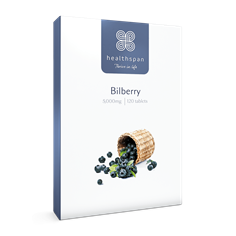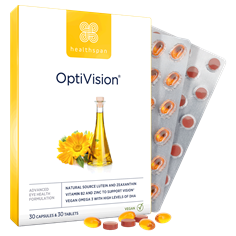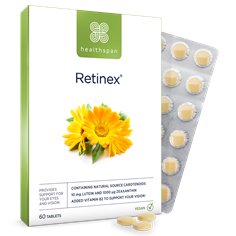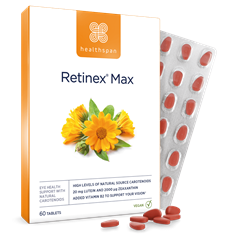Eye Vitamins
Maintaining good eye health throughout our life is as important as looking after our joints or heart. This becomes even more important as we get older, as many serious eye conditions (including cataracts and age-related macular degeneration) become more common with age.
Lifestyle changes – like taking screen breaks, wearing sunglasses in strong sunlight, and seeing the optician regularly – are just some of the measures that can improve eye health, alongside nutritional support from eye vitamins like lutein, zeaxanthin, and vitamin B2.
All three can be found in Heathspan's range of eye health supplements, including Retinex®, Retinex Max®, Bilberry and OptiVision®: high-strength, expert-created formulations for comprehensive eye health support.
Healthspan customer reviews
Eye health guides
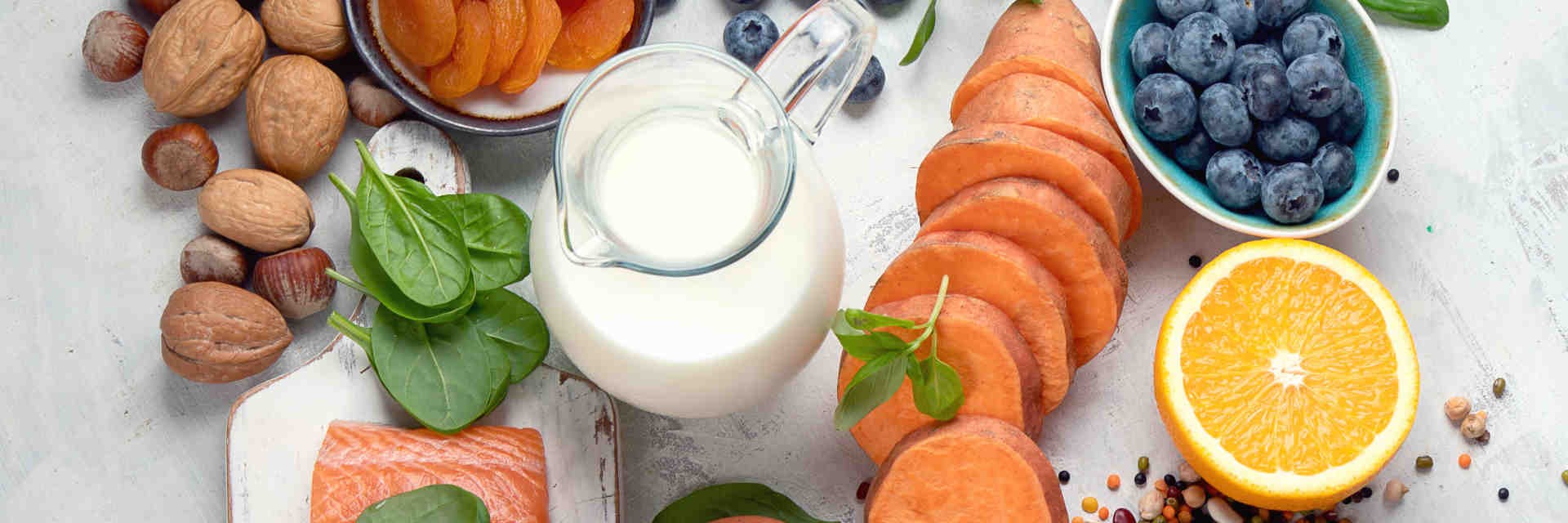



Why support eye health?
As we get older, the risk of poor eyesight increases, with the most common causes being cataracts, glaucoma, and age-related macular degeneration (AMD). Many of these conditions are also progressive – which means that there is always a benefit to starting an eye health routine, even if you have one of these conditions already.
Maintaining good vision allows us to continue with activities and hobbies that require fine vision – from doing crosswords and reading the newspaper, to participating in our favourite sports.
Good eye health can also mean being more comfortable, including helping with dry eyes.
How to support eyesight
There are many simple (and often inexpensive) steps that we can take to support our short- and long-term eye health. These include regular eye tests (which can help to detect glaucoma), wearing sunglasses to protect eyes from UV rays (which can potentially damage parts of the eye, increasing the risk of cataracts and AMD) and taking screen breaks.
Research has shown that when looking at a computer screen, we blink at a lower rate, so to avoid the risk of eye strain and dry eyes, guidelines from the College of Optometrists recommend that we look away from a screen for 20 seconds every 20 minutes. Lubricant drops can also help.
If you do spend time looking at screens each day, it's also worth taking some extra steps to protect your eyes from excessive blue light exposure. As nutritionist Sarah Dumont-Gale explains, "over time, increased blue light exposure can cause lasting damage to the light-sensitive cells found in the retina, and can lead to changes including macular degeneration, cataracts and dry eye."
One important way to help protect the eyes, says Dumont-Gale, is to ensure our diets contain sufficient amounts of lutein and zeaxanthin, found in green leafy vegetables and yellow and orange fruits and vegetables. Find out more about protecting your eyes from blue light.
Other beneficial vitamins and minerals include vitamin B2 (found in dairy products, meat and seafood), which contributes to the maintenance of normal vision, vitamins C and E (which contribute to the protection of cells from oxidative stress) and the fatty acid DHA, which contributes to the maintenance of normal vision. You can obtain DHA by eating oily fish twice a week or by taking an omega 3 fish supplement.
Eye health vitamins
Whether you need an eye supplement depends on a number of factors, including your age, current eye health and whether it's something you want to protect for the future. Lifestyle factors – such as time spent on screens or doing close work, as well as exposure to UV light and diet – should also be considered.
In addition, even if you eat a healthy, balanced diet, many fruits and vegetables contain lower quantities of vitamins and minerals (thanks to modern farming methods, food transportation and cooking methods) than they did in the past – so obtaining enough high-quality vitamins and minerals can be a challenge.
Eye health vitamins can help to plug the gaps. Many will provide the EU's daily recommended quantity of vitamin B2, as well as vitamins C and E, which act as antioxidants to help prevent damage.1,2 Vitamin C also contributes to normal collagen formation for the normal function of blood vessels.2
Lutein and zeaxanthin are also central ingredients in some of Healthspan's best-selling eye supplements.
Lutein and zeaxanthin supplements
Lutein and zeaxanthin are found naturally in the macula – the part of the eye responsible for vision. Much research has focused on lutein and zeaxanthin and their ability to absorb blue light.
In fact, research has shown that age-related macular degeneration is associated with reduced levels of lutein and zeaxanthin in the macula, and that those living with the condition have, on average, 70 per cent less carotenoid pigments in their eyes than those with healthy vision.
Retinex®, Retinex Max® and OptiVision® all contain lutein and zeaxanthin, but in different strengths and with different complementary eye vitamins.
All Healthspan's lutein and zeaxanthin comes from a natural marigold source, which is purified and tested before being combined with other eye vitamins to make premium, market-leading formulations.
Retinex®, Healthspan's value offering, combines 10mg lutein, 1000µg zeaxanthin and 1.4mg vitamin B2 (the full amount the EU recommends all adults should consume each day) to provide comprehensive daily eye health support. With the option to take one or two tablets a day, Retinex® allows you to choose the right dose for you.
Retinex® Max is a maximum-strength formulation, containing 20mg lutein, 2000µg zeaxanthin and 1.4mg vitamin B2 (which contributes to normal vision.) Every tablet is vegan-friendly – and at just 32p per daily dose, allows everyone to make a long-term commitment to their eye health.
OptiVision®, the premium lutein supplement in the Healthspan range, includes a daily tablet and capsule. Each tablet contains 20mg lutein and 2000µg zeaxanthin, plus vitamin B2 and zinc3 to support normal vision. Copper and vitamins C and E help protect your cells from oxidative stress.4
Finally, each daily OptiVision® capsule contains 250mg DHA, which is sourced from sustainable marine microflora (rather than fish) and contributes to the maintenance of normal vision.
Vitamin B2 eye supplements
As well as working along lutein and zeaxanthin, vitamin B2 features in Healthspan's Bilberry supplement, for the maintenance of normal vision and to help protect eyes from damage.5
Despite being the lesser-known cousin of blueberries, bilberries have a number of benefits, says nutritionist Sarah Dumont-Gale, primarily because of their "high concentration of anthocyanins[…] which can protect the body from oxidative stress (an imbalance between free radicals and antioxidants)". Legend has it that the British Royal Air Force used to eat bilberry jam for their supper.
Healthspan's Bilberry supplement contains 50mg bilberry extract, sourced from the Vaccinium myrtillus L. plant to obtain a powerful extract equal to 5000mg of whole bilberries. By adding 1.4mg vitamin B2, every Bilberry tablet is rich in nutrients for your eyes and wellbeing.
Find out more about the benefits of bilberries.
Healthspan eye vitamins and supplements
Healthspan is proud to provide high-quality eye health supplements at the best everyday prices, backed up by unsurpassed customer service and free returns.
If you're ready to shop for eye health vitamins, discover all our eye health supplements above, along with more advice on specific areas of eye health – including glaucoma and diabetic retinopathy, guarding against blue light exposure or looking after your eyes on holiday.
Don't forget, you can also add the supplements you love to Subscribe & Save, our subscription service that saves you time, money and hassle.
Finally, if you have any questions or queries, please don't hesitate to get in touch. Our expert advisors are available seven days a week – by phone, email, live chat or post.
1Vitamin B2 (riboflavin) contributes to the maintenance of normal vision, contributes to the maintenance of normal mucous membranes, and contributes to the protection of cells from oxidative stress.
2Vitamin C contributes to the protection of cells from oxidative stress, and contributes to normal collagen formation for the normal function of blood vessels. Vitamin E contributes to the protection of cells from oxidative stress.
3Zinc contributes to the maintenance of normal vision and contributes to the protection of cells from oxidative stress.
4Copper contributes to the protection of cells from oxidative stress.
5Bilberry may help maintain eye health through anti-oxidant and vascular effects (on hold claim). Vitamin B2 (riboflavin) contributes to the maintenance of normal vision, contributes to the maintenance of normal mucous membranes, and contributes to the protection of cells from oxidative stress.








